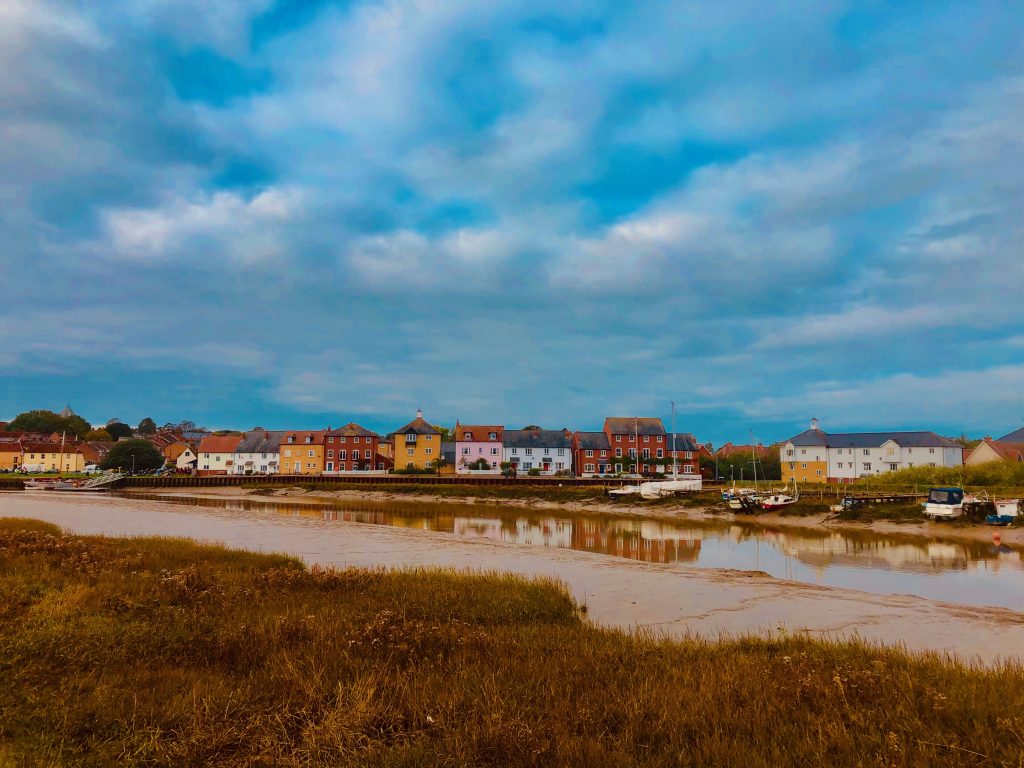During the pandemic, a time when most of us are stuck inside studying online and not moving much, it is important to stay healthy in order to keep the same energy and try to stay positive. Sabine Hoerkner walks us through a few tips in order to eat well and be healthy.
My name is Sabine and I am an MSc Biotechnology student of the School of Life Sciences. I became passionate about my health when I changed my lifestyle 5 years ago. Within the past 5 years I worked with two nutritionists to improve my health, so what I have learned by working with them became part of my every-day life. This year has been an extra challenge for many of us, so I would like to share some tips on how to stay healthy during Covid-19.
I hope everyone can agree that there is nothing better than homemade food. As many of us students are busy with assignments or other duties, we easily tend to opt for unhealthy food choices, e.g. ultra-processed foods. When I moved to Colchester, I invested in a slow-cooker so I can study while my meal is slow-cooking without me having to constantly watch it. The slow cooker dish holds quite a lot of volume, I also have leftovers for the next day or two. A few of my favourite recipes range from liver pâté made from grass-fed ox liver (I source it locally from Wigborough Traditional meats and it’s so nutritious), dal or just a mix of different veggies, especially sweet potatoes. I also love sourdough bread but since it’s a long process in making it, I get it at Brownbread’s weekly stall. It’s organic and also high- quality. Of course, everyone has different food preferences, so one quick search on the internet and you will find a lot of recipes that you can make at home. The reason why I enjoy preparing my food is that, first of all, I know the ingredients I cook my meals with, and second, it simply tastes better than processed food. Additionally, before having my meals, I take a few deep breaths to be in a parasympathetic (rest and digest) state and be grateful as well for the food I have on my plate. Also, nowhere near me, you will find a distraction (phone, music, or TV).

Since we spend more time online these days, whether that is attending zoom meetings or communicating with our peers, I try to limit the use of social media/technology as much as possible, especially before going to bed. Instead, I spend my time on other activities, such as crafting or going for a walk on the campus. Every third Saturday of the month, there is also an outdoor market in Wivenhoe, so I use that as an opportunity to go for a long walk along the Wivenhoe trail. Another fun activity to do outdoors is Stand Up Paddle Boarding. Mersea Island Watersports offer SUP lessons for beginners and boards are also available for hire. One of my favourite indoor exercises since the lockdown in March is a 5-minute arm exercise by Yoga and Pilates instructor Kristin Mcgee, it’s really fun and you can find it on her YouTube Channel. While we are also exposed to less or no sunshine during the winter months, I supplement with Vitamin D, which is also recommended by the NHS. So, in that case, I would recommend checking your vitamin D levels with your GP.
I also noticed being active (whether that is working on coursework or doing physical exercise) during the day and spending time outdoors has a positive impact on my sleep. I value sleep a lot and follow a kind of strict routine. That means, I get up at the same time every day (around sunrise), also on weekends, and go to bed before midnight. Before going to bed I apply an organic lavender essential oil topically to help me relax (it also works very well during exams). The oil is a local product made by Stour Valley located in Harwich. I discovered it first at The Wholefood Store in Manningtree but also recently at An Ethical Life in Hythe.

Lastly, I would like to recommend a book that was published this year in response to the pandemic. The book is called “The 21-Day Immunity Plan” written by NHS cardiologist Dr. Aseem Malhotra. Also, I added a few scientific papers that you might find interesting to read. I hope you enjoyed reading my article and find the tips I shared useful. If you are interested in my recipes or need more book recommendations, feel free to drop me an email.
1. Hedda L Boege, Mehreen Z Bhatti, Marie-Pierre St-Onge, Circadian rhythms and meal timing: impact on energy balance and body weight, Current Opinion in Biotechnology, Volume 70, 2021, Pages 1-6, ISSN 0958-1669, https://doi.org/10.1016/j.copbio.2020.08.009
2. LeBouef T, Yaker Z, Whited L. Physiology, Autonomic Nervous System. [Updated 2020 Jun 1]. In: StatPearls [Internet]. Treasure Island (FL): StatPearls Publishing; 2020 Jan-.Available from: https://www.ncbi.nlm.nih.gov/books/NBK538516/
3. López V, Nielsen B, Solas M, Ramírez MJ, Jäger AK. Exploring Pharmacological Mechanisms of Lavender (Lavandula angustifolia) Essential Oil on Central Nervous System Targets. Front Pharmacol. 2017;8:280. Published 2017 May 19. doi:10.3389/fphar.2017.00280